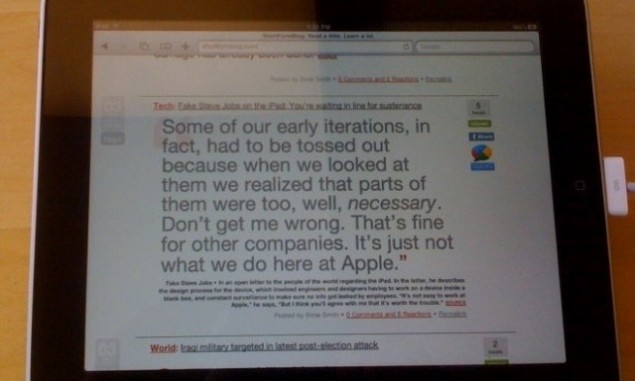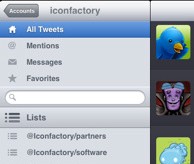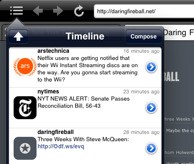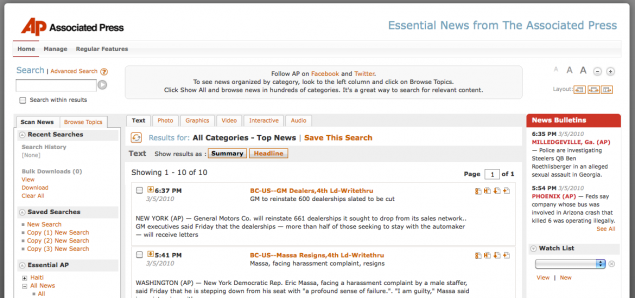Biz: We’re gonna use this post to link to the Nikkei’s home page
- Why? Because they say we can’t. The Japanese business newspaper is following the lead of a lot of newspapers worldwide by adding a paywall, but their paywall is way beyond that of, say, the Wall Street Journal. First, you have to submit a written application to link to the site (which we didn’t do). And second, they’ve gone and disabled the copy function on their site. Why? Because they’ve seen American papers open the floodgates and lose readership as a result. source




